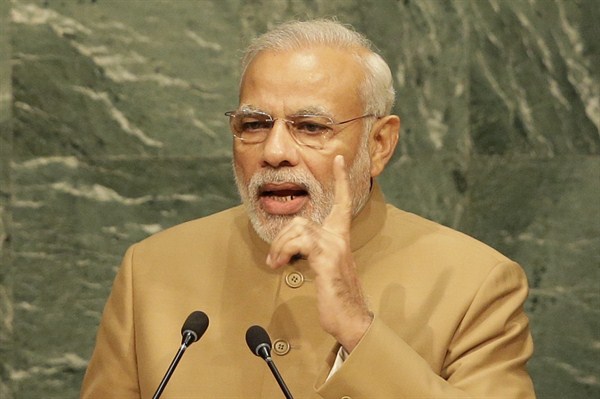Does India still need the United Nations? Does the U.N. still need India? New Delhi and the New York-headquartered organization have always had a complex political relationship. India prides itself on having acted as a leading voice for the developing world at the U.N. in the era of decolonization. It remains a leading contributor of troops and police to blue-helmet peace operations. But there is little heartfelt warmth in the relationship these days.
Indian officials have made very little progress toward their overarching goal at the U.N.: securing a permanent seat on the Security Council. New Delhi has been pressing this issue on and off for years, but made an extra push in 2015, to coincide with the U.N.’s 70th birthday. It would be unfair to say that they got nowhere at all, as diplomats hashed out a new document as the basis for negotiations on the matter.
But Indian observers know full well that most U.N. documents come and go without changing much in the real world. The latest paper is a compilation of national positions, and opponents of India’s claim to a permanent seat, such as Pakistan, refused to submit their views at all. Chinese diplomats lobbied exceptionally hard to stymie the process, although their main target was Japan—which also wants a permanent seat, as do Brazil and Germany—while the U.S. did not engage seriously.

